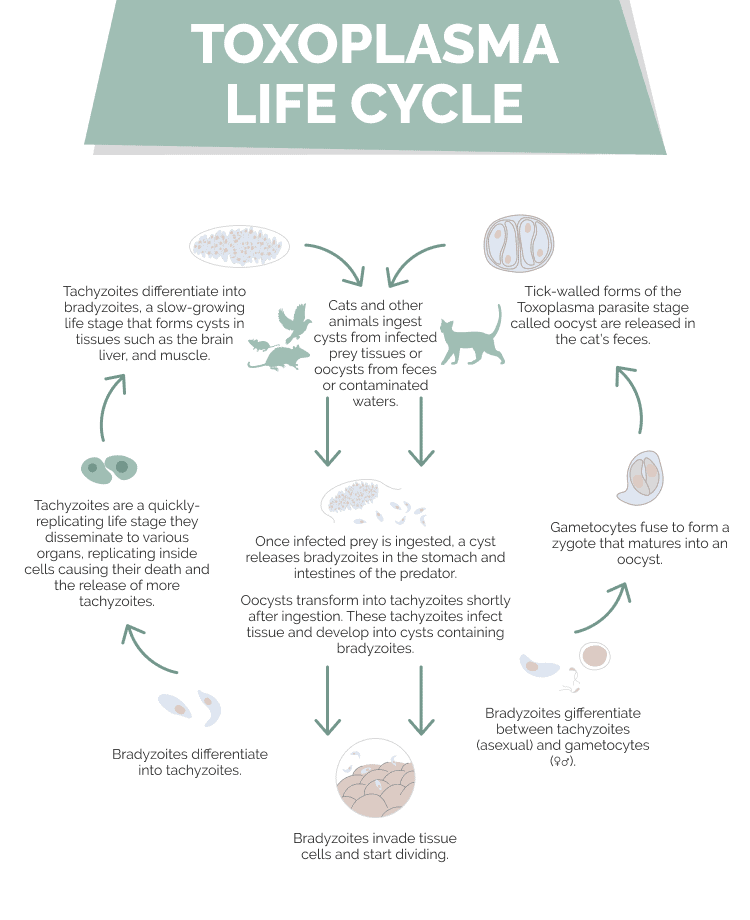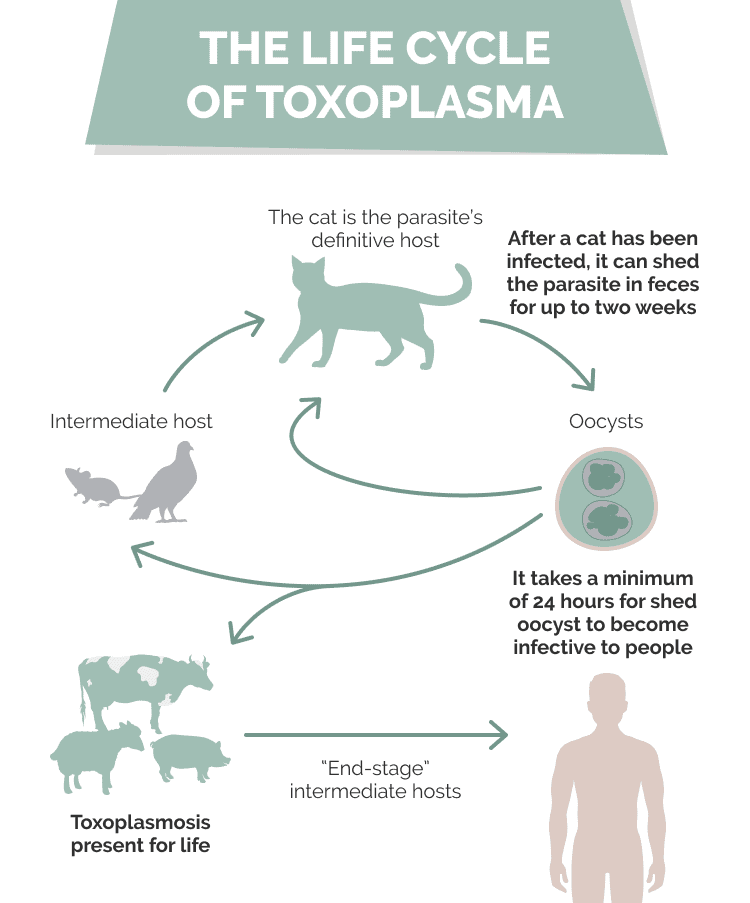Can Indoor Cats Get Toxoplasmosis? What You Need to Know!

Updated on

Pregnant women are often advised to stay away from cat litter due to the risk of contracting toxoplasmosis. According to the CDC, this disease can cause premature labor and birth defects and is the leading cause of death due to foodborne illness. It’s obviously a serious concern, but it’s not likely that you’ll contract toxoplasmosis from your indoor cat.
 What Is Toxoplasmosis?
What Is Toxoplasmosis?

Toxoplasmosis is a parasitic infection caused by a single-celled protozoan called Toxoplasma gondii. This parasite is found throughout the world and is carried by both humans and animals. Approximately 60 million people in the US alone carry the parasite.
Cats are definitive carriers of the Toxoplasma parasite, meaning that the parasite can only reproduce when it infects a cat. While pregnant women are frequently warned of the risk of contracting this infection from their feline companions, the reality is that they are at a much greater risk of contracting it from undercooked meat, blood transfusions, or coming in contact with contaminated soil. Cleaning the litter box of an infected cat is only one way to contract it.
Toxoplasmosis in Cats

We stated earlier that the only way the parasite causing toxoplasmosis can reproduce is when it infects a cat. Cats get infected by eating contaminated raw meat or by eating infected prey. After ingesting the parasite, it takes between 3 and 10 days for eggs to be produced, at which time the cat will excrete parasite eggs in their feces for the next 2 weeks.
Parasite eggs are infective in cat feces for up to 5 days. Humans and other animals are intermediate hosts for the parasite. While they can’t shed eggs the way cats do, they can carry the parasite around in their bodies. This leads to cyst production in infected animals.
Signs of Toxoplasmosis in Cats

Most cats infected with toxoplasmosis don’t show any signs of illness, making it difficult to determine if they have it. Those that do will show signs of a compromised immune system, including fever, lack of appetite, and lethargy. Some infected cats will develop pneumonia; some have their nervous system or eyesight affected. In very rare cases, cats can suffer from blindness, light sensitivity, loss of bladder and bowel function, seizures, lack of coordination, and personality changes.
Toxoplasmosis and Indoor Cats
Since indoor cats don’t hunt for their food or eat raw meat like outdoor cats, they are very unlikely to become infected with toxoplasmosis. If your cat does get infected, it is a self-limiting disease, meaning they can only be infected once in their lifetime. After about a month, your cat will stop shedding parasite eggs in its feces.
The even better news is that parasite eggs don’t become infective in a cat’s poop until 24 hours after the cat defecates. If the feces are removed from the litter box and disposed of in under 24 hours, there is very little chance of anyone else becoming infected.
What Is the Risk of Contracting Toxoplasmosis From My Cat?
While toxoplasmosis is scary, there is a greater than 25% chance that you are already carrying the parasite without even knowing it. It can be contracted by eating undercooked meat, handling dirt without washing your hands, or handling cat poop.
When a human contracts toxoplasmosis, they feel flu-like symptoms, similar to many cold and flu viruses. Once you’ve had it, you can’t get it again, and once your cat has had it, they can’t get it again either.
Assuming neither you nor your cat has ever been infected with toxoplasmosis, your cat will require exposure to become infected. And again, even if they do get infected, their poop has to sit in the litter box for over 24 hours to transmit the parasite.
 Final Thoughts
Final Thoughts
The risk of contracting toxoplasmosis from an indoor cat fed with cooked food or commercial diets is extremely low. For a non-pregnant individual, it’s of little concern at all. At worst, if you contract the parasite, you will feel unwell for a few days. For pregnant women, toxoplasmosis can be extremely dangerous, causing serious health concerns to the unborn baby. If you are pregnant and absolutely must clean your cat’s litter box, wear gloves and make sure to clean it daily. The best way to avoid the risk altogether is to have someone else in your house clean the litter box for the duration of your pregnancy. You can still snuggle and play with your cat risk-free; you just need to avoid their poop.
See also:
Featured Image Credit: one photo, Shutterstock

 What Is Toxoplasmosis?
What Is Toxoplasmosis?








